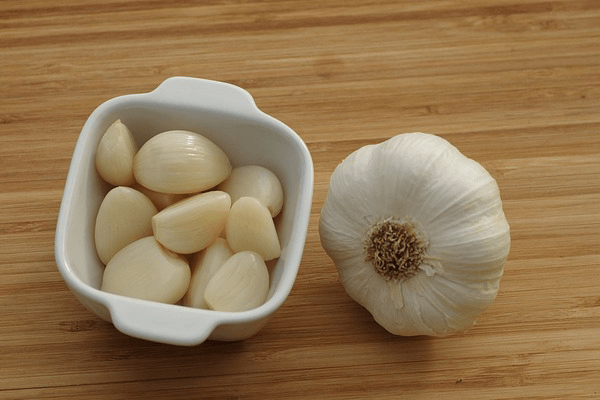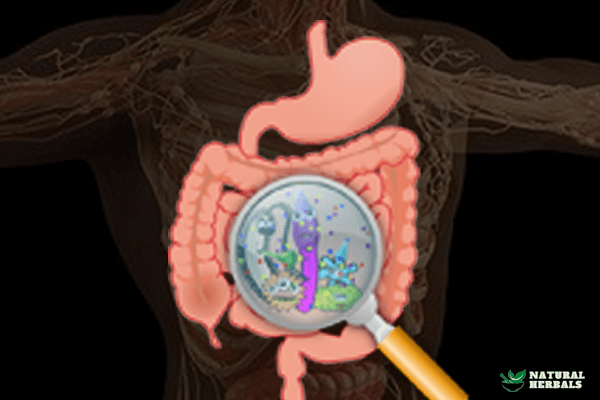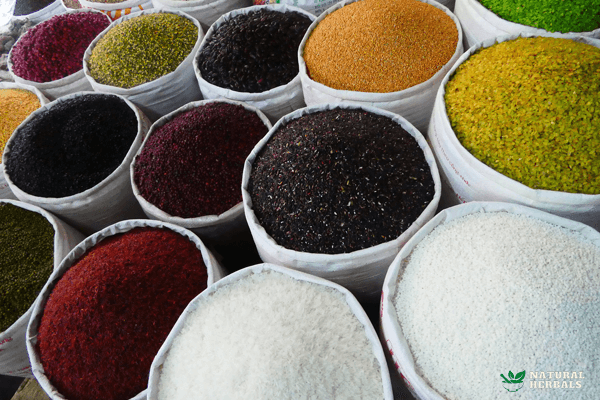
Garlic, also known as Allium sativum, is a popular ingredient in many dishes. But did you know that garlic has been used for centuries as a natural remedy for various ailments? In this article, we will explore the healing properties of garlic and how it can benefit your health.
Garlic and Its Nutritional Value
Garlic is a nutrient-dense food that contains various vitamins and minerals, including vitamin C, vitamin B6, selenium, and manganese. It also contains a compound called allicin, which gives garlic its distinct odor and flavor. Allicin is a sulfur-containing compound that has been shown to have anti-inflammatory, antibacterial, and antifungal properties.
Garlic and Cardiovascular Health
One of the most well-known benefits of garlic is its ability to improve cardiovascular health. Studies have shown that garlic can help lower blood pressure, reduce cholesterol levels, and prevent blood clots from forming. These benefits are attributed to the sulfur-containing compounds found in garlic, which can help improve blood flow and reduce inflammation in the body.
Garlic and Immune System Support
Garlic is also known for its immune system-supporting properties. Studies have shown that garlic can help boost the immune system by stimulating the production of white blood cells, which are responsible for fighting off infections and diseases. Garlic also contains antioxidants, which can help protect the body from oxidative stress and damage caused by free radicals.
Garlic and Cancer Prevention
Garlic has been studied for its potential anti-cancer properties. Some studies have shown that garlic can help prevent the development of certain types of cancer, including colon, stomach, and prostate cancer. The sulfur-containing compounds found in garlic have been shown to have anti-cancer properties, which can help prevent the growth and spread of cancer cells.
How to Incorporate Garlic into Your Diet
Garlic can be incorporated into your diet in various ways. You can add garlic to dishes such as soups, stews, and stir-fries for added flavor and health benefits. You can also use garlic to make salad dressings, marinades, and sauces.
Precautions and Side Effects
While garlic is generally safe for most people, it can cause side effects in some individuals. Common side effects of garlic include bad breath, body odor, and digestive issues. It can also interact with certain medications, including blood-thinning medications and some antibiotics. If you are taking any medications or have any underlying health conditions, it is best to consult with your healthcare provider before adding garlic to your diet.
Garlic and Respiratory Health
Garlic has also been studied for its potential benefits in respiratory health. Some studies have shown that garlic can help alleviate symptoms of respiratory infections, such as the common cold and flu. Garlic's antibacterial and antiviral properties can help fight off the underlying infection, while its anti-inflammatory properties can help reduce inflammation in the respiratory tract.
Garlic and Digestive Health
Garlic has also been shown to have benefits for digestive health. Studies have shown that garlic can help reduce inflammation in the digestive tract and improve gut health. Garlic's prebiotic properties can also help promote the growth of beneficial bacteria in the gut, which can improve overall digestive health.
Garlic and Skin Health
Garlic has been used for centuries as a natural remedy for various skin conditions. Its antibacterial and antifungal properties can help fight off infections on the skin, while its anti-inflammatory properties can help reduce inflammation and redness. Garlic has also been shown to have benefits for wound healing, as it can help promote the growth of new tissue and prevent infections.
Garlic and Brain Health
Garlic has been studied for its potential benefits in brain health. Some studies have shown that garlic can help improve cognitive function and memory in older adults. Garlic's antioxidant properties can help protect the brain from oxidative stress and damage caused by free radicals, which can contribute to cognitive decline.
How to Choose and Store Garlic
When choosing garlic, look for bulbs that are firm and free of mold or soft spots. Store garlic in a cool, dry place, such as a pantry or cabinet. Avoid storing garlic in the refrigerator, as this can cause it to sprout and become bitter.
Conclusion
Garlic is a versatile ingredient that offers a wide range of health benefits. Its healing properties range from improving cardiovascular health and supporting the immune system to preventing cancer and promoting skin health. With its many benefits and easy incorporation into the diet, garlic is a valuable addition to any health-conscious individual's lifestyle. However, as with any natural remedy, it is important to be aware of potential side effects and interactions with medications. If you are considering adding garlic to your diet, it is best to consult with your healthcare provider first.
References:
- Josling, P. (2001). Preventing the common cold with a garlic supplement: a double-blind, placebo-controlled survey. Advances in Therapy, 18(4), 189-193.
- Arreola, R., Quintero-Fabián, S., López-Roa, R. I., Flores-Gutiérrez, E. O., Reyes-Grajeda, J. P., Carrera-Quintanar, L., & Ortuño-Sahagún, D. (2015). Immunomodulation and anti-inflammatory effects of garlic compounds. Journal of Immunology Research, 2015, 401630.
- Kim, J., Lee, H. J., Lee, K. W., & Lee, H. J. (2013). Garlic intake and cancer risk: an analysis using the Food and Drug Administration's evidence-based review system for the scientific evaluation of health claims. The American Journal of Clinical Nutrition, 98(3), 712-719.
- Bhandari, P. R. (2014). Garlic (Allium sativum) and its potential in prevention of cancer. Asian Pacific Journal of Cancer Prevention, 15(20), 8575-8580.
- Wichtl, M., & Anton, R. (1999). Garlic (Allium sativum L.)—a review of its medicinal effects and indicated active compounds. Phytomedicine, 6(6), 287-301.
- Ried, K., Toben, C., & Fakler, P. (2013). Effect of garlic on serum lipids: an updated meta-analysis. Nutrition Reviews, 71(5), 282-299.
- Hsing, A. W., Chokkalingam, A. P., Gao, Y. T., Madigan, M. P., Deng, J., Gridley, G., … & Fraumeni Jr, J. F. (2002). Allium vegetables and risk of prostate cancer: a population-based study. Journal of the National Cancer Institute, 94(21), 1648-1651.
- Bayan, L., Koulivand, P. H., & Gorji, A. (2014). Garlic: a review of potential therapeutic effects. Avicenna Journal of Phytomedicine, 4(1), 1-14.




